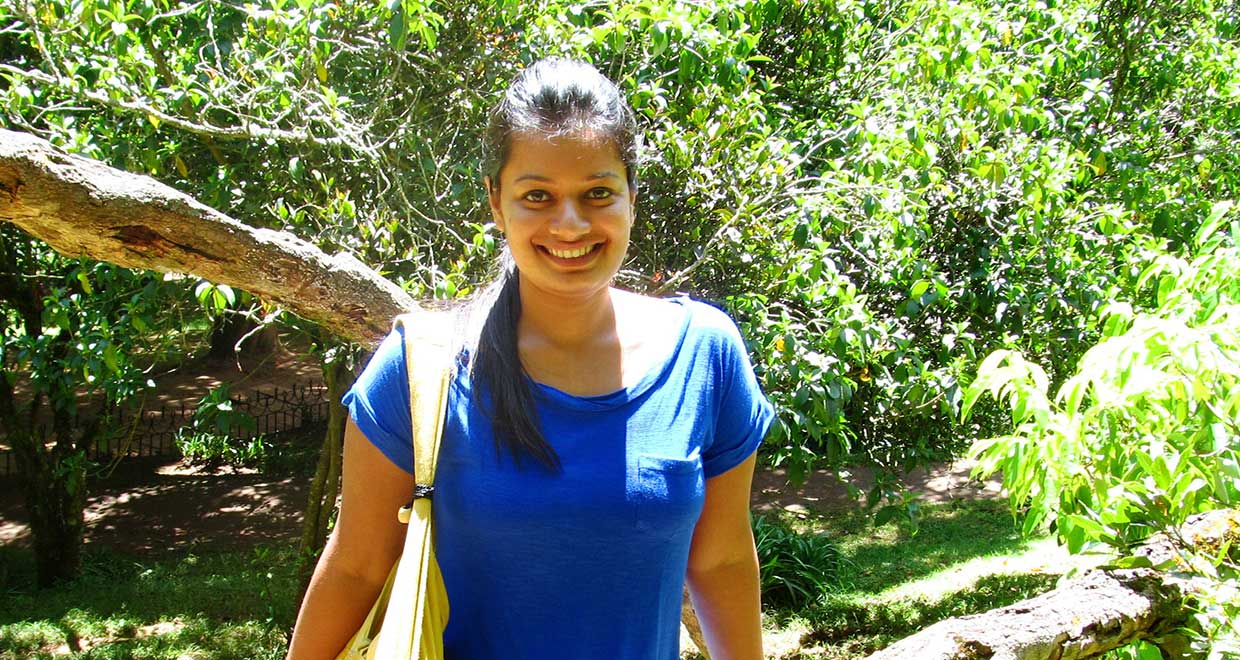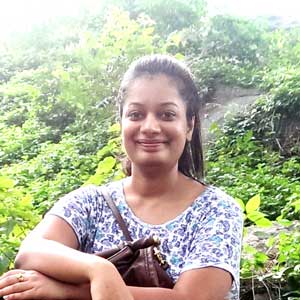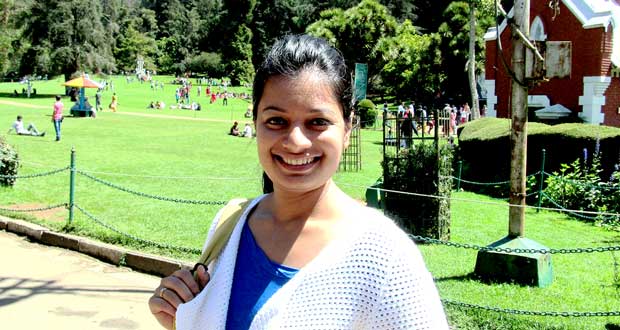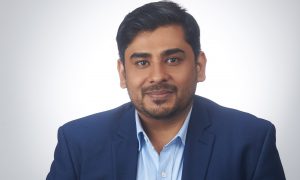Roshni MS graduated from ILS Law College in 2011. As a law student she has been quite active and participated in various co-curricular activities. By the time she graduated, she had received a job offer from PricewaterhouseCoopers where she worked for nearly three years. Later, she switched to Economics Law Practices and is currently working as an Associate there.
In this interview, she talks about:
- Law school experience at Indian Law Society’s Law College
- First year work experience at PricewaterhouseCoopers (PwC)
- Building a career in Indirect Tax law
- Appointment and work at Economic Laws Practice (ELP)
Please tell us what motivated you to pursue law as a career? How did you get through to ILS, Pune?
I did a major part of my schooling in Nagpur, a city that I still hold very close to my heart. Studying at the prestigious Bhartiya Vidya Mandir, I was given ample opportunities to touch base with a lot of facets which could eventually culminate into a career, be it sports, fashion or academics. However, all my life I remember being leaning towards academics despite having a good run with sports. And to choose a profession which marries this interest had to be law, considering my aversion to the numerous doctors and engineers in the family!
Numbers were a great deal in my family and board exams were euphoria in themselves. I’m sure it is like that in most of yours. The gruelling hours put into studying eventually paid off when I saw my name in the first merit list put up by ILS, Pune. My decision to take it up was well thought and well discussed and I am more than happy to say, it’s the best decision I could have made.
Please tell us a bit about your time at ILS, Pune. Please tell us about the manner in which you approached academics while in college.
My time at college, by no means of exaggeration, was the best time of my life. The best thing about ILS, apart from other things, was the college timings: the first two years were roughly 3 hours of college and the next three were about 4 hours. You have the rest of the day to figure out things for yourselves. There were the kind who would join language classes, typing classes, work somewhere, join a diploma. I do not think any other college would give you that kind of leverage.
The first year of college was a mess. You actually didn’t know how to approach your academics. Studying did not help and my scores plummeted. But after two semesters, and speaking with seniors, doing meticulous research, I approached the exams in a smarter, better prepared manner. I would be lying if I said I did not study, honestly I put in 4 times the effort and ended up securing a place in the merit list. And proudly, that continued.
What is your opinion when people say that all that they have learnt is in their years of practice?
Legal Education is just that, theory. It definitely gives you a ready reckoner in your head and can guide yourself appropriately to the law. But the problem is when you need to put them to use. Except litigation, where you are given practical experience in the form of moots, corporate practice differs in humongous proportions.
The learning curve begins at college, but literally curves when you join a corporate. It is indeed funny, but true, when people say all that they have learnt is in their years of practice. The approach the majority takes in college is to clear the exam. Unfortunately, while it helps that time, it does nothing for you at the workplace. There was no one to tell us this when we were in college, but I hope this helps you.
How do you think academic research and writing can be encouraged in Indian law schools?
Students by their own volition take part in numerous competitions for academic research and legal writing. The drafting and nomenclature which is otherwise used once in awhile in these competitions become a way of life once you venture into corporate life. Hence, inculcating this habit should become a norm.
How was your first year after graduation? What do you think were the biggest hurdles and challenges in the early days of your career? How did you deal with them?
My first year after graduation was more or less like first year of college. You are mighty confused all the time. But the truth of the matter is everyone goes through this phase and it is more than okay to be that way.
Apart from the learning you need to impart yourselves, another important factor which helped me immensely was the fact that I got to work with wonderful people. The work environment is an important factor which makes you the person you become.
How did your appointment at PwC take place? How was your experience working there? Tell us what a typical day at work was like for you?
PricewaterhouseCoopers, Mumbai (PwC) will always be special one for me, not only because I started my career there but because I met a lot of wonderful colleagues there. Be it my contemporaries or also the seniors I worked with and those I had a chance to mingle with. PwC had come to campus during our placement week in college and I was very happy to have made it through. What was challenging though was I did not study tax in college and to join a firm that specialized in Indirect Taxation which was a mighty decision in itself. My time spent at PwC taught me everything I know of Indirect Tax today.
A typical day started with a quick meeting with my manager and discussing the things to do and the meetings to attend to. Everything was organised and of course, there was that break you had to take for a coffee with your friends at work. Once that was done, we were back on our seats and punching vigorously into our laptops. At the end of the day, I was mighty pleased with the things I worked on and the new facets of law I had learnt. Every day was a learning and I used to look forward to being there. I strongly recommend PwC Mumbai as one of the ideal work places to be in.
You left PwC to join ELP in their indirect taxes wing. What prompted you to make this choice and what made this shift possible?
When I moved from Mumbai to Bangalore, a lot of things changed. They say location plays a major role on your work profile. Bangalore, as everyone knows is an IT dominated city and my profile had a major chunk of Indirect Tax compliance related assistance. This was a challenge initially but as I picked up this facade, I realised how important it is to understand the compliance involved in the subject you are working in. I strongly advise that everyone involved in indirect tax advisory must spend some time doing the compliance.
But after spending a good 11 months in the compliance sector, I wished to move back to the advisory role in Indirect Taxation. And ELP arrived in Bangalore at the precise moment while this thought had initiated. And hence, the shift to move to ELP to join their indirect tax advisory practice.
What kind of work and responsibilities generally an associate at ELP deals with? What should a student do so that he gets placed in a prestigious firm like ELP?
An Associate at ELP is typically occupied with immense drafting and litigation assistance. You have some interesting legal opinions to work on and draft some meticulous replies to show cause notices and appeals etc.
Typically, ELP hires post a scrutiny vide your internship and hence it is of utmost importance that you have a chance to intern here.
What are the primary professional ethics you follow while at work? How do you deal with mistakes or errors?
Professional ethics come naturally once you are in the workplace. Some simple terms like collaborate, share, speak, admit and question etc. will help you in a long way. The environment you are at work is what you create of it. If you do commit an error, admit it. But make sure you don’t repeat the same thing again. That will only mean that you are not learning from your mistakes and may tick off the Boss.
How do you say one can gain expertise in tax law? What does it take to be a good tax lawyer?
There is no substitute to experience. There is no prodigy in tax law. To be a good tax lawyer is not different from being a good lawyer. Be sincere towards the work bestowed upon you.
Is the work significantly different from other transactional lawyers? How much of your work does involve litigation, if at all?
Indirect taxation strives on litigation as much as other laws do. But what is great is that this subject also demands equal attention for the advisory work which improves your research, drafting and technical skills, ultimately which will help during the litigation.
Tell us about the difference between being an In-house counsel and a Law Firm Associate.
When I did have the chance to join an industry, this is something I thought about diligently. Being a client facing associate, I was exposed to a variety of industries and accordingly to a vast number of issues. That was something I did not want to lose.
Alternatively, the clientele you interact with from the companies, be in the Legal team or the Finance team are one of the most passionate and brilliant minds in the legal fraternity. They are the go-to personnel of the Company before any major decisions are taken. That feeling should be irreplaceable.
However, being in a firm, addressing varied client issues since the start of my career, I will be biased to a Law Firm Associate!
Recently, the Supreme Court declared the National Tax Tribunal as unconstitutional. What is your take on this?
While declaring the NTT could be construed as a progressive step, what is a matter of concern is the pending litigation for which the NTT was initially set up. This ruling could also affect all similar tribunals set up to decide substantial question of law. Nevertheless, there must be an alternate remedy for the speedy disposals of the pending matters and increase the confidence of the tax payers
You have excelled in your academics, interned at top-notch Indian. How can one excel as a law student and enjoy college life?
There were some seniors in college who told me that you must intern every vacation you had and there were the others who said that it really did not matter. So I did a bit of both.
I made sure I did not intern in my first year of college. And that I would do a maximum of only 5 internships in the 5 years I spend in college. But what I did was to intern at different environments. So I interned with an individual lawyer, a company and law firms. This gave me a heads up on what to expect where.
As for the fun part, I had a lot of time for that. I spent most of my free time with my friends or travelled back home to be with my family. I used to play tennis and would catch up on the game at a sports club nearby or you would find me drinking glasses and glasses of cold coffee in the cafeteria. Yup, definitely the best days!
What do you cherish most about the experience you have had over the past two years?
My time spent at PwC Mumbai is something that will linger on for times to come. It may not be completely true when someone tells you that you do not make friends at work. But fortunately for me, I was glad to have had that.
What’s next for you?
There are definitely some plans up my sleeve but for now, I am just going with the flow.


























